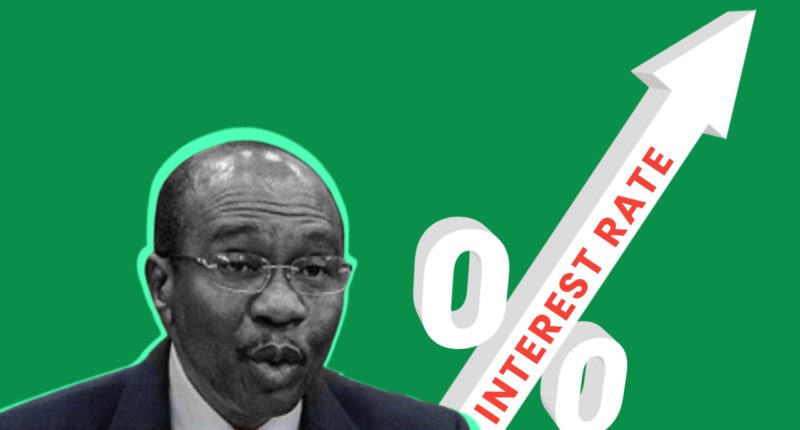The Governor of the Central Bank of Nigeria (CBN), Godwin Emefiele, has on Tuesday announced a rise in the country’s interest rate (otherwise known as monetary policy rate) from 14 percent to 15.5 percent.
Driving the news
The Monetary Policy Committee of the CBN unanimously raised the country’s interest rate to 15.5 percent following the continuous rise in inflation rate. CBN by this policy hopes to combat the increased cost of goods and services.
- Despite the CBN in its last two Monetary Policy Committee meetings increasing the interest rate from 11.5 percent to 14 percent, there has been no obvious improvement in the country’s economic situation.
What happens when interest rates go up
When the interest rate goes up, the cost of borrowing money equally increases. This means that consumers would likely see higher rates on loans. Experts around the world believe that increased interest rates can have either a positive or negative impact on inflation.
However, for a country like Nigeria, where inflation is primarily caused by a high dependence of supplied goods and forex stability on these supplied goods, increased interest rates have a slim chance of solving the country’s inflation situation. Businesses have a slim chance of raising capital in the form of loans as the cost of borrowing relatively rises.

